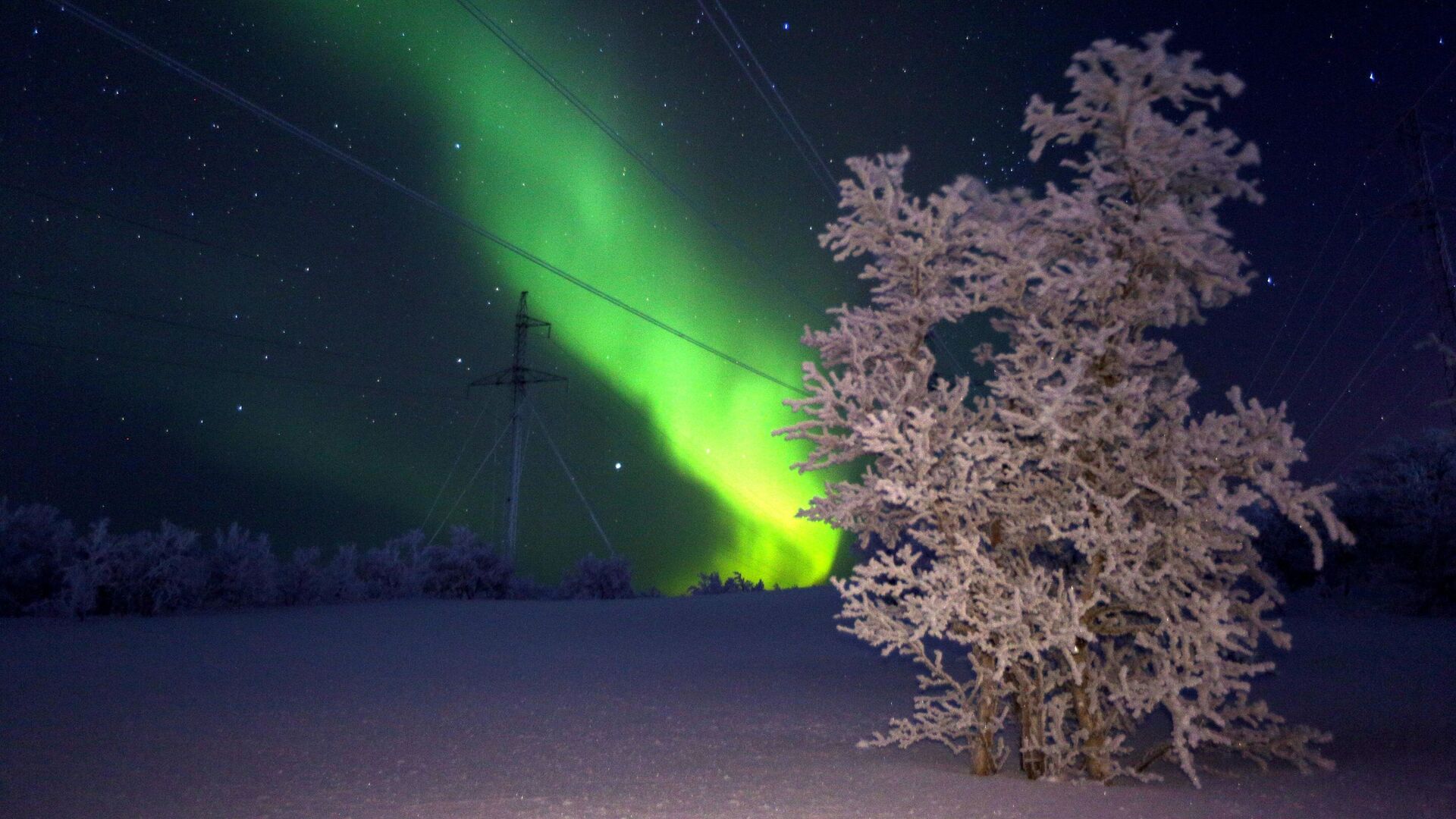https://sputnikglobe.com/20211226/scientists-explain-phenomenon-of-glowing-snow-in-the-russian-arctic---photos-1091811754.html
Scientists Explain Phenomenon of 'Glowing' Snow in the Russian Arctic - Photos
Scientists Explain Phenomenon of 'Glowing' Snow in the Russian Arctic - Photos
Sputnik International
Scientists at the White Sea biological station of the Moscow State University spotted an unusual phenomenon recently: a blue illumination in the snow.
2021-12-26T11:35+0000
2021-12-26T11:35+0000
2021-12-26T11:35+0000
russia
snow
white sea
arctic
nature
https://cdn1.img.sputnikglobe.com/img/107820/47/1078204767_0:320:3073:2048_1920x0_80_0_0_a825384caca8e84872f9f7811363c7af.jpg
Scientists from Moscow State University's White Sea biological station spotted an unusual phenomenon recently: a blue illumination in the snow. Biologist Vera Emelianenko was out for a walk with one of her colleagues when they'd seen an unusual glowing in the snowbanks. Emelianenko took a handful of snow and squeezed it a bit to see the glow become even brighter. Then she invited her colleague and the station's photographer, Alexander Semenov, to take pictures of the mysterious lights. He later shared photos of the picturesque phenomenon on Facebook.The next day, Emelianenko placed a glowing snowball under a stereomicroscope and soon she spotted some copepods, tiny aquatic crustaceans. When she touched them, they shone a faint blue.According to Ksenia Kosobokova, an expert on Arctic marine zooplankton at Russia’s Academy of Science in Moscow, these copepods were caught in a powerful current and washed through cracks in the ice and snow. But why did they glow? Experts say that bioluminescence is mostly produced when a small energy-storing molecule - luciferin - is oxidised. Discovering the 'glowing' snow at the station, which has been active for more than 80 years but has not documented such a phenomenon before, has become a reason for young biologists to be proud of their curiosity which did not prevent them from taking a stroll on a frosty night. “You never expect that there will be beauty right under your nose that you hadn’t realised can exist," Alexander Semenov said.
white sea
arctic
Sputnik International
feedback@sputniknews.com
+74956456601
MIA „Rossiya Segodnya“
2021
News
en_EN
Sputnik International
feedback@sputniknews.com
+74956456601
MIA „Rossiya Segodnya“
Sputnik International
feedback@sputniknews.com
+74956456601
MIA „Rossiya Segodnya“
white sea, russian arctic, russian biologists, glowing snow
white sea, russian arctic, russian biologists, glowing snow
Scientists Explain Phenomenon of 'Glowing' Snow in the Russian Arctic - Photos
The 'glowing' snow has been repeatedly observed in the area but until recently biologists have not had a detailed explanation of why such an effect ever occurs.
Scientists from Moscow State University's White Sea biological station spotted an unusual phenomenon recently: a blue illumination in the snow.
Biologist Vera Emelianenko was out for a walk with one of her colleagues when they'd seen an unusual glowing in the snowbanks. Emelianenko took a handful of snow and squeezed it a bit to see the glow become even brighter. Then she invited her colleague and the station's photographer, Alexander Semenov, to take pictures of the mysterious lights. He later shared photos of the picturesque phenomenon on Facebook.
The next day, Emelianenko placed a glowing snowball under a stereomicroscope and soon she spotted some copepods, tiny aquatic crustaceans. When she touched them, they shone a faint blue.
According to Ksenia Kosobokova, an expert on Arctic marine zooplankton at Russia’s Academy of Science in Moscow, these copepods were caught in a powerful current and washed through cracks in the ice and snow. But why did they glow? Experts say that bioluminescence is mostly produced when a small energy-storing molecule - luciferin - is oxidised.
Discovering the 'glowing' snow at the station, which has been active for more than 80 years but has not documented such a phenomenon before, has become a reason for young biologists to be proud of their curiosity which did not prevent them from taking a stroll on a frosty night.
“You never expect that there will be beauty right under your nose that you hadn’t realised can exist," Alexander Semenov said.


